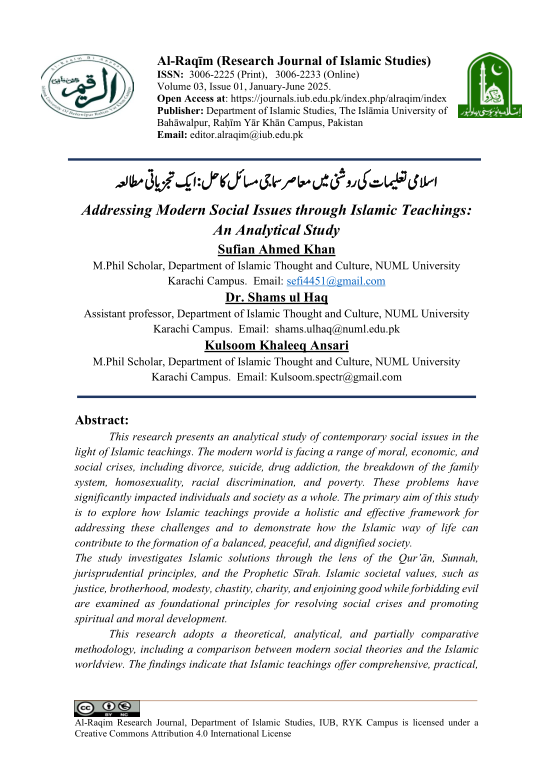عصرِ حاضر میں مسلم علماء کی فکری و سماجی ذمہ داریاں: ایک تحقیقی مطالعہ
Intellectual and Social Responsibilities of Muslim Scholars in the Contemporary Era: A Research Study
Keywords:
Responsibilities, Religious Scholars, Muslim society, worth following character, culture, education, reformation, rules of governance, difficulties and problems.Abstract
This research study explores the intellectual and social responsibilities of Muslim scholars in the contemporary era, focusing on their role in guiding the Muslim Ummah amidst modern-day challenges. In a rapidly evolving global environment characterized by ideological conflicts, technological advancements, and sociopolitical changes, the ulama (religious scholars) are expected to serve not only as preservers of religious knowledge but also as reformers, educators, and active contributors to societal harmony and development.
The study highlights the historical role of scholars in shaping Islamic thought and society, and then examines how their responsibilities have expanded in response to current issues such as secularism, moral decline, political instability, and youth disconnection from religious values. Using a qualitative methodology based on classical texts, contemporary writings, and case studies, the research aims to provide a comprehensive framework for understanding the dynamic role of scholars today.
Key findings suggest that Muslim scholars must balance tradition with innovation, engage with modern disciplines, promote social justice, and address the spiritual and intellectual needs of diverse communities. The study concludes with recommendations for educational reform, institutional development, and community engagement to empower scholars in fulfilling their roles more effectively.

Downloads
Published
Issue
Section
License
Copyright (c) 2025 Dr. Aisha Sadaf

This work is licensed under a Creative Commons Attribution-NonCommercial 4.0 International License.




